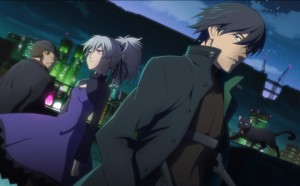“They’ve made it past Grestin,” the Czarina-to-be said, and twirled the liquid still in her wine glass until it formed a small whirlpool. That always entertained her. “Nine days.”
She was an elegant woman – certainly not from this country. She preferred to wear the more rigid and and jewelry-spangled dresses of her home, not the loose flowing clothes that the royalty here wore. It made her stick out like a diamond in a heap of coal. She was refined – spoke elegantly, rarely stumbled, good posture. Demanded attention when she entered rooms, argued when she knew she could win. Nothing at all like the Czarina.
“You must have faith, Emilia,” said the Czarina. “Mikhail has been chanting every day, three times a day. He will know what to do soon.”
Emilia scowled at the Czarina. “Why do we need him to tell us what to do? You rule this country for a reason -”
“My husband rules this country -”
“No, you and your husband rule this country, your highness, and just because he believes that a priest chanting every day will solve all of our problems doesn’t mean it in fact will.”
There was a knock on the door of the reading room. The Czarina-to-be, always acutely aware of etiquette, let the Czarina stay sitting as she strolled over and opened the door. Standing on the other side was Alexander, holding a tray of cream-filled pastries.
“Hello young master Alexander. To what occasion do we owe these pastries?”
“These are supposed to be for Mikhail. He’s chanting,” said Alexander. He was the same height as the Czarina-to-be, and he looked into her eyes. For most who gazed into those black pools, there was either contempt, or nothing. But Alexander always found some shred of respect, hidden deep at the back of cornea, and when he saw that, he made sure to reciprocate. “But he never eats more than a few, so you can have some,” he said, smiling and raising the tray. “I’ll put them down on the table.”
The Czarina-to-be smirked and let him in. He placed down the tray on the night-stand beside the chair the Czarina sat in, and wandered over to the unlit fire place, where he began kindling.
The Czarina was downtrodden. “There is no reason to doubt Alexander -”
Alexander looked over his shoulder and at the Czarina. She realized her mistake.
“Oh – sorry Sasha, my apologies. I was speaking of the Czar. My husband.” Alexander went back to making the fire.
He tuned out the rest of the conversation, focusing instead on arranging the wood as best as he could to burn as long as it could. He liked setting it up in a tent-formation, leaning all the different logs against each other to form a teepee. It was fun to watch the moment where the logs, once they were burning, all collapsed inward in a heap. It gave him a reason to watch the fire.
Things had been boring.
Last night, after much pleading, Mikhail relented and said he would give Alexander a practice session today. But this morning, when Alexander asked about it, Mikhail didn’t seem to want to remember. He removed his shirt and entered the sacred chamber wordlessly, leaving Alexander confused and angry. He wanted the wood to burn.
When he had finished making the fire, he returned to the hallway just outside the giant door leading to the Sacred Space, and Molly was sitting there, on the little bench built for those waiting just outside the door.
“Molly,” Alexander said, “What are you doing here?”
She looked up at Alexander with timid eyes. “Well,” she said softly, “I saw no one was waiting here, and I figured I’d just . . . keep an eye on the door until you returned.”
Alexander smiled. When she spoke, she folded her hands gently over her lap and retracted her head as far inward to her body as she could, leaving her bony shoulders poking out.
“Thanks Molly,” he said. She stood up as he sat down. She began slowly to stride away, but stopped only a few paces from the bench, and turned around.
“Alexander? Do you think Mikhail’s incantations will help?”
She bit her lip and looked at him like a child asking if the monsters will get her. It was strange that they were the same age, but only logical for her to be scared.
“Of course they will help,” he lied. “That is our job, right?”
She sadly smiled. “Of course. Of course.” She scurried away, red-cheeked.
Alexander closed his eyes and listened to the faint rhythm of incantation escaping from the chamber. It was a slow and mournful incantation this time. Mikhail dragged out the notes as long as he could, but enunciated them sloppily, only wishing to cry something, but nothing in particular. The melody progressed slowly in arcs, building and building as he raised his voice higher, then becoming softer and simpler as he chanted the low, low notes. And so the chant went on like a lazy river, winding and building and ceasing, but never rushing.
At last, the sounds ceased, and Alexander pushed open the big door. He found Mikhail collapsed on his back, breathing slowly with his eyes closed, looking almost dead, from the whiteness of his face. He put a blanket on him and raised him to he feet. The walked together to the hallway.
“Sasha, Sasha, you must have a practice soon,” he said. “Tonight.”
Alexander’s heart leaped. At last.
When Alexander sat him down in the big chair in the reading room and offered his pastries, the Czarina had left and the Czarina-to-be was still twirling the wine in her glass, looking forlornly out the window. He wondered how the conversation had ended.
“Old man,” she said to Mikhail, “How goes the chanting?”
Mikhail coughed, and chewed his pastry for a long minute. “As always, I saw everything and nothing.”
She scowled. “You don’t really believe this will make a difference, right?”
Alexander normally would’ve expected a careful smile from his mentor’s face, and a return of ‘”why not?”, or some other affirmation of faith. He would’ve normally expected Mikhail to be calm and collected in criticism, the see all skepticism not as evil, but as a chance to teach someone in faith. But when the Czarina-to-be said this, Mikhail just frowned, furrowed his eyebrows, and bit his lower lip. The room, in spite of the fire, froze over.
“We must take action, not sing songs.” The Czarina-to-be gazed straight at Alexander. “Besides, can you really believe in the . . . junk espoused by the church?”
Alexander wasn’t sure how to react, so he did the most monastic thing he could – nothing. The Czarina-to-be, seeing only contempt, or at least confusion among Mikhail and Alexander, put down her wine glass on the pastry tray and left the room.
Mikhail sighed, and finished the wine.



![IMG_0175[1]](http://sites.lafayette.edu/eng250-fa13-wasaczl/files/2014/01/IMG_01751-e1389083377535-179x300.jpg)
![IMG_0177[1]](http://sites.lafayette.edu/eng250-fa13-wasaczl/files/2014/01/IMG_01771-e1389083392575-208x300.jpg)
![IMG_0178[1]](http://sites.lafayette.edu/eng250-fa13-wasaczl/files/2014/01/IMG_01781-e1389083437203-205x300.jpg)
![IMG_0179[1]](http://sites.lafayette.edu/eng250-fa13-wasaczl/files/2014/01/IMG_01791-e1389083460437-226x300.jpg)
![IMG_0180[1]](http://sites.lafayette.edu/eng250-fa13-wasaczl/files/2014/01/IMG_01801-e1389083487234-221x300.jpg)
![IMG_0181[1]](http://sites.lafayette.edu/eng250-fa13-wasaczl/files/2014/01/IMG_01811-e1389083512868-216x300.jpg)
![IMG_0182[1]](http://sites.lafayette.edu/eng250-fa13-wasaczl/files/2014/01/IMG_01821-e1389083536569-218x300.jpg)
![IMG_0183[1]](http://sites.lafayette.edu/eng250-fa13-wasaczl/files/2014/01/IMG_01831-e1389083556355-218x300.jpg)
![IMG_0185[1]](http://sites.lafayette.edu/eng250-fa13-wasaczl/files/2014/01/IMG_01851-e1389083575482-223x300.jpg)
![IMG_0187[1]](http://sites.lafayette.edu/eng250-fa13-wasaczl/files/2014/01/IMG_01871-e1389083606914-220x300.jpg)
![IMG_0186[1]](http://sites.lafayette.edu/eng250-fa13-wasaczl/files/2014/01/IMG_01861-e1389083626617-233x300.jpg)
![IMG_0188[1]](http://sites.lafayette.edu/eng250-fa13-wasaczl/files/2014/01/IMG_01881-e1389083733331-202x300.jpg)
![IMG_0189[1]](http://sites.lafayette.edu/eng250-fa13-wasaczl/files/2014/01/IMG_01891-e1389083330499-300x265.jpg)
